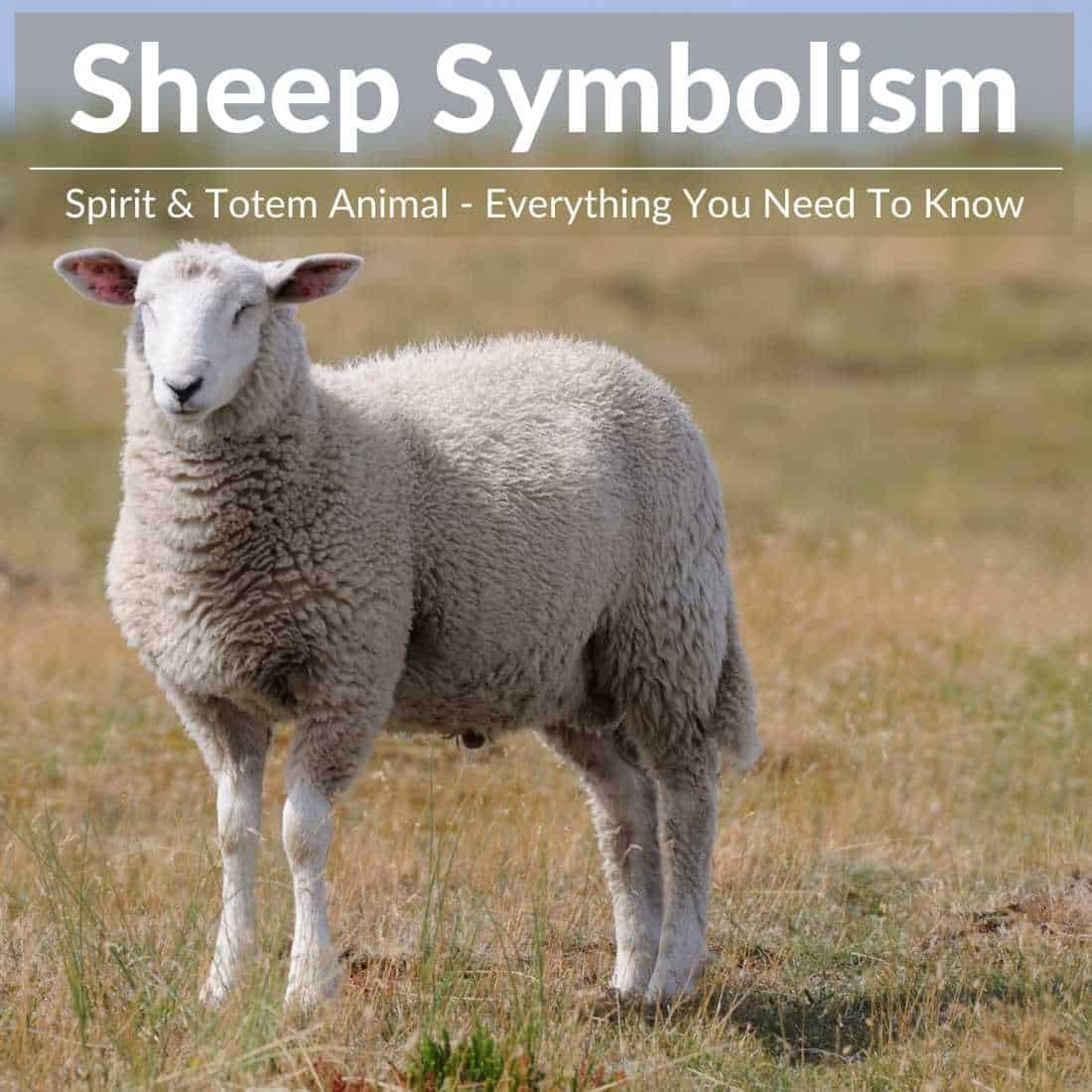Sheep symbolism has intrigued cultures for millennia, but why? From ancient Egyptian rituals to modern-day fables, sheep have been emblematic of purity, sacrifice, and obedience.
Table of Contents
But there’s more beneath the woolly surface. Dive in as we unravel the deeper meanings behind these gentle creatures and discover why their symbolism remains relevant today.
Stay with us; you’re in for an enlightening journey.
Key Takeaways
- Sheep symbolize purity, sacrifice, and obedience across various cultures and religions.
- The relationship between sheep and shepherds highlights mutual trust and loyalty.
- Dreams of sheep offer profound insights into our waking lives and inner emotions.
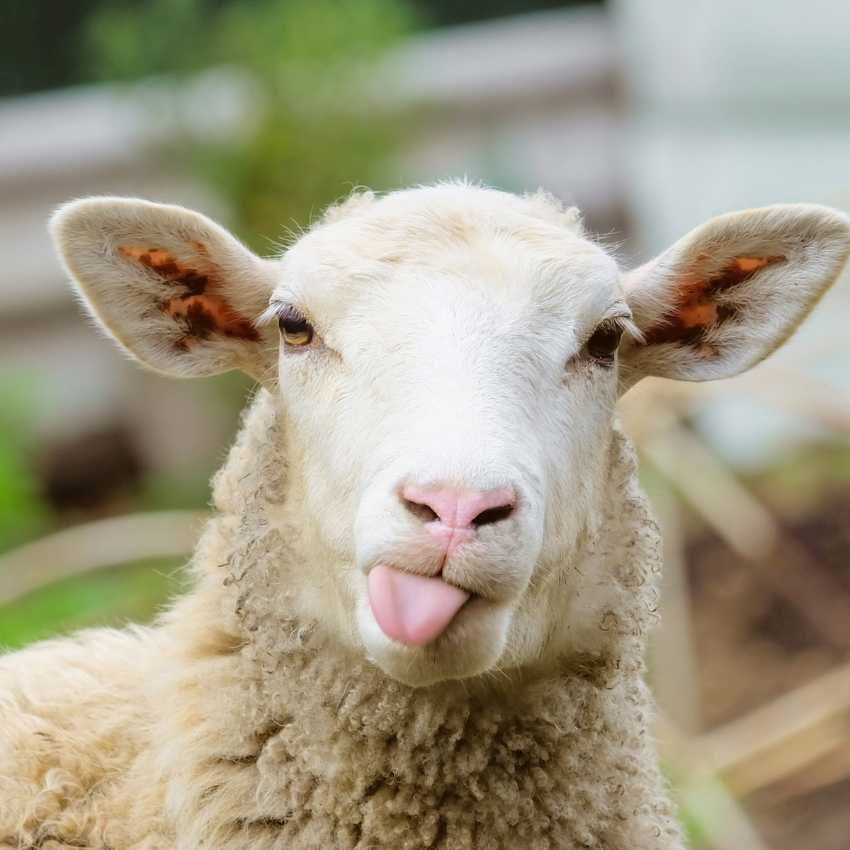
What do sheep symbolize?
Sheep, often seen grazing peacefully in pastures, carry a depth of symbolism that transcends their simple appearance. Their presence in various cultures and religions has cemented their status as powerful symbols, representing a myriad of attributes.
Obedience and Loyalty
Sheep are renowned for their obedience and unwavering loyalty. In many tales, they follow their shepherd without hesitation, showcasing their inherent trust.
This trust is not born out of naivety but from a deep-seated bond. In our own lives, this can be a reminder of the importance of trust and loyalty in our relationships.
Gentleness and Friendliness
The gentleness and friendliness of sheep are attributes that endear them to many. Their soft wool and gentle bleats paint a picture of an animal that is approachable and kind.
This demeanor reminds us of the value of kindness and the impact of a gentle approach in our interactions.
Sacrifice
Historically, sheep have been a source of sustenance, providing both meat and dairy. But their symbolism goes beyond this.
They represent the ultimate sacrifice, often being offered in religious ceremonies. This act of giving, even at the cost of one’s life, underscores the depth of their symbolic value.
Faith and Trust
The relationship between the sheep and the shepherd is one of mutual faith and trust. The shepherd provides care and protection, while the sheep offer unwavering loyalty.
This bond is emblematic of the trust we place in those who guide us, be it spiritual leaders, mentors, or family.
Affection and Value
To the owner, a sheep is not just an animal; it holds immense value. Beyond the economic benefits, the affection an owner has for their sheep is profound.
This mirrors the deep connections we form with those we care for, cherishing their intrinsic value beyond materialistic measures.
Sheep Symbolism by Region and Spiritual Lesson
| Sheep | Region | Spiritual Lesson |
|---|---|---|
| General Sheep | Global | Trust and loyalty are foundational in relationships. |
| White Sheep | Various Cultures | Purity, innocence, and harmonious existence guide a peaceful life. |
| Black Sheep | Various Cultures | Embrace uniqueness and defy societal norms to find one’s true path. |
| Sheep in Pastures | Celtic | Family and sustenance are integral to identity and spiritual beliefs. |
| Sheep Sightings | Native American (Navajo) | Spiritual guides communicate future paths and decisions. |
| Domesticated Sheep | Christianity | Following divine guidance leads to spiritual protection and fulfillment. |
| Sheep in Dreams | Global Dream Interpretation | Dreams offer insights into current life situations and future prospects. |
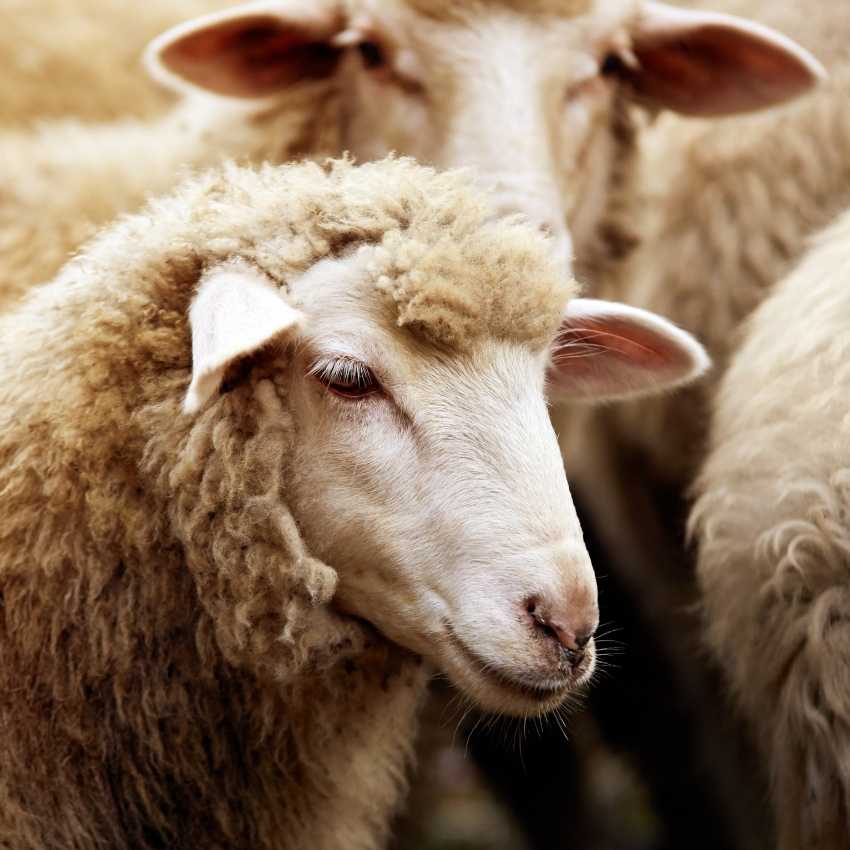
The sheep as a spirit animal
Spirit animals serve as guides, offering insights into our inner selves and the world around us. Among them, the sheep stands out, symbolizing innocence, vulnerability, and a deep connection to one’s spirituality, especially around significant times like Easter.
Key Traits of the Sheep as a Spirit Animal:
- Innocence and Vulnerability: A desire to reconnect with the child-like purity we once had.
- Obedience and Loyalty: The tendency to conform to group norms and follow guidance without question.
- Fragility: Representing situations where protection against negative influences is needed.
- Naivety: Easily misled due to a lack of worldly knowledge, yet embodying pure intentions.
- Strength in Vulnerability: Despite being preyed upon, they remind us of the inner strength we possess.
- Creativity: Their wool has been a symbol of imagination and creativity since ancient times.
- Life After Death Symbolism: Tying into spiritual beliefs, especially around Easter.
- Leadership: As the ram protects its flock, it symbolizes leadership and strength.
- Fertility: Representing abundance, growth, and the ability to navigate challenges with grace.
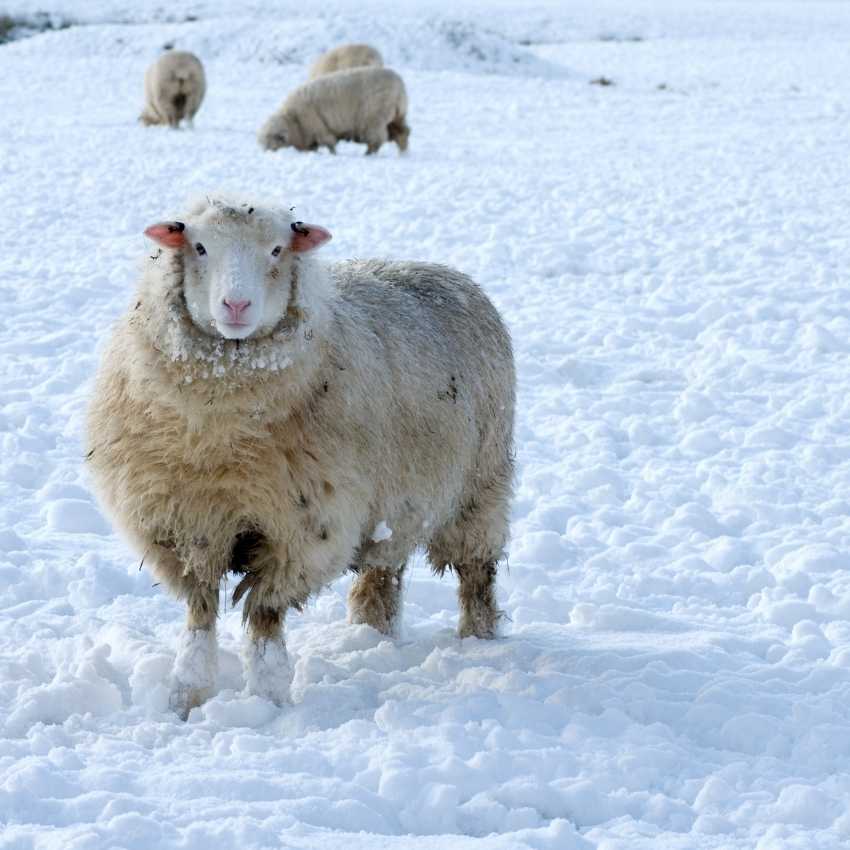
The Dual Symbolism of Black and White Sheep
In the world of animal symbolism, the sheep, with its gentle demeanor, holds a special place. But delve deeper, and you’ll find that the colors of these creatures – black and white – carry their own unique tales and interpretations.
Black Sheep: Embracing the Unconventional
The term “black sheep” often refers to someone who stands out from the crowd, not always fitting into societal norms. This color symbolizes defiance, a break from the traditional.
It’s about uniqueness and bravery, daring to be different in a world that often values conformity. Moreover, black sheep are seen as protectors, shielding the flock from potential threats.
Their dark hue makes them less visible at night, offering a form of natural protection.
White Sheep: The Epitome of Purity
On the other end of the spectrum, the white sheep embodies conformity, often adhering to the set path and not straying. Their pristine white wool is a symbol of meekness and purity, representing innocence and a harmonious existence.
In many cultures, the white sheep is revered, seen as a beacon of hope and tranquility. Their gentle nature and willingness to follow make them the perfect representation of peace and unity.
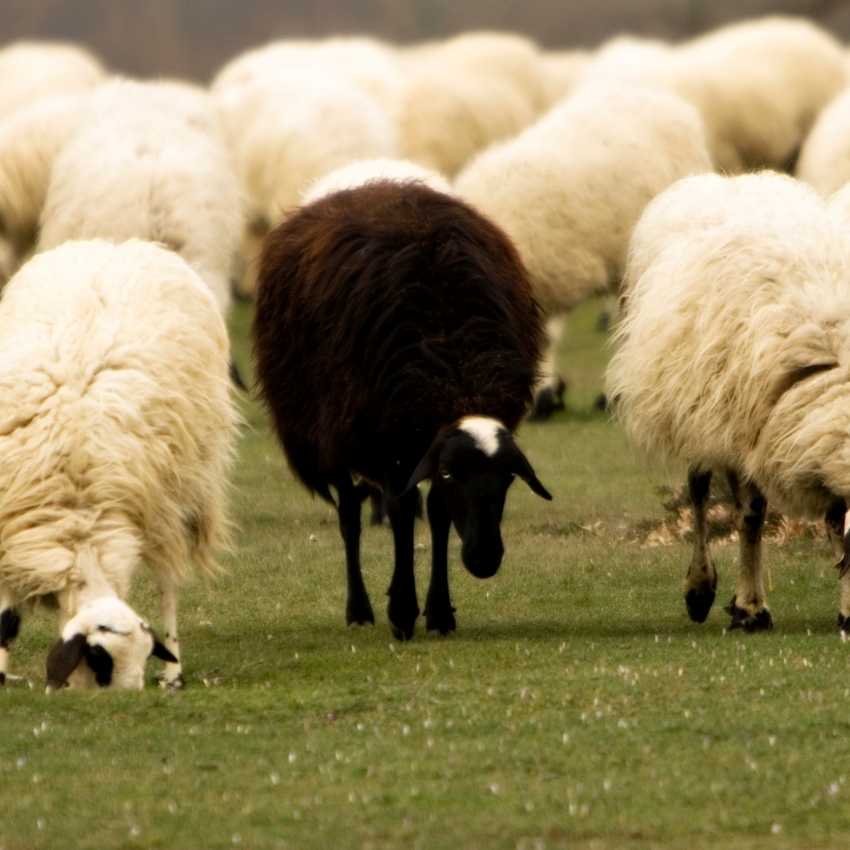
Sheep symbolism in different cultures
Celtic culture
In Celtic culture, sheep symbolized family. Because the Celts were a pastoral society that relied on their flocks for food and clothing, they considered them to be an integral part of what made up their identity as individuals and members of clans (religious).
The idea is similar to what we see in other cultures where animals are used symbolically; it’s not only about representing what kind of animal was being depicted but also its purpose within the community. In this case, because so many people depended upon these animals as sources of sustenance they had great significance when it came to religious beliefs surrounding life after death or reincarnation itself.
For example: if you died with your flock by your side, it was believed you would be able to bring your animals with you into the afterlife.
Native American culture
The Navajo tribe of North America viewed sheep symbolism as a form of understanding what was to come next in life. They believed that when you saw one or more sheep, it meant your spirits were communicating with you about what choices need to be made and what path should be taken moving forward.
For many Native Americans who lived off the land, their sheep were what allowed them to survive. Not only did they provide food and fiber for clothing, but also served as a form of currency when trading goods with other tribes (money).
The sheep in Native American society was well-respected because it helped sustain their livelihoods; what’s more, is that everything from both the meat and fur could be used for what was needed. In a way, these sheep were much like those in Celtic culture: they served as what made up their identity and spirituality.
Christianity
Sheep have been used as a source of symbolism in Christianity for thousands of years (just like the camel symbolism in the bible). In the book of John (17:12), Jesus says, “While I was with them, I kept them safe by what my Father has given me.”
The physical representation is that sheep are domesticated animals that follow humans around and look to be taken care of. That’s what we must do for others if we want to lead an authentic life; with God’s help, it becomes much easier knowing what path you should take moving forward.
If they wander off or get lost, it symbolizes our own wandering from God and looking elsewhere instead where He can’t provide us guidance. When this happens – when we go astray without his guidance – we end up not only hurting ourselves but others as well.
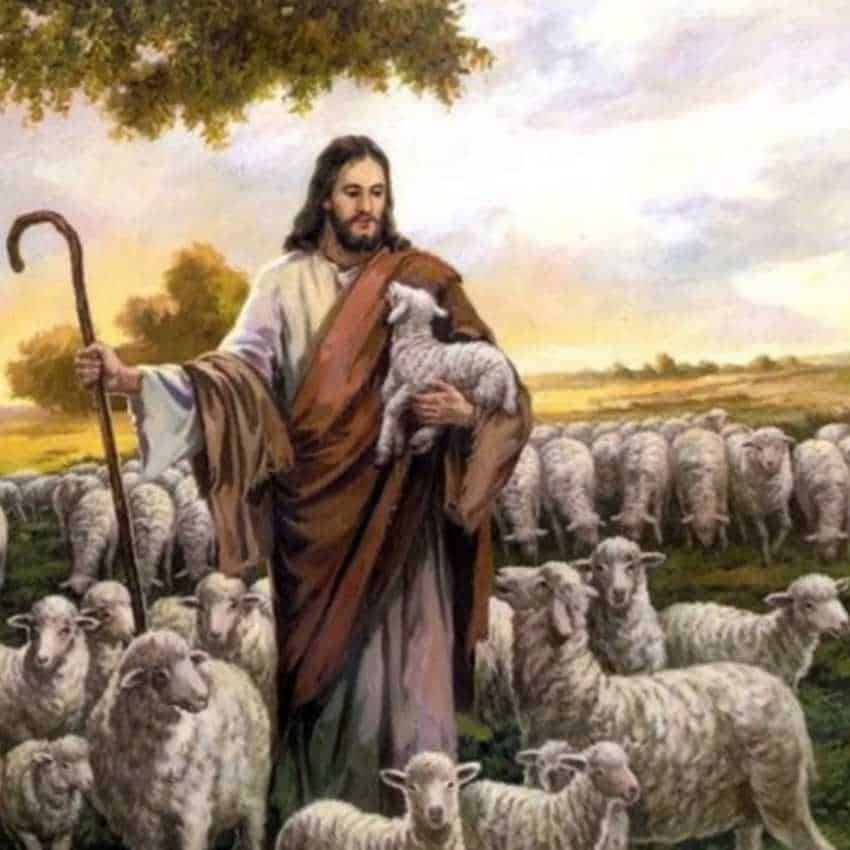
What does dreaming of sheep mean?
Dreams, those mysterious journeys our minds embark on during slumber, often carry profound meanings. When sheep wander into these nocturnal narratives, they bring with them a rich variety of interpretations, each shedding light on different facets of our waking lives.
Healthy Sheep: Harbingers of Hope
Dreaming of healthy sheep grazing peacefully is a promising sign. Such visions often herald positive turning points in one’s life, be it in personal endeavors, career advancements, or relationships.
It’s as if the universe is signaling a period of abundance and prosperity.
Escaping Sheep: A Warning Sign
Witnessing sheep escaping or running away in dreams can be unsettling. This typically signifies potential losses or theft.
It’s a nudge from our subconscious, urging us to be vigilant, especially regarding our possessions or investments.
Dead Sheep: Treading Troubled Waters
The sight of a dead sheep in a dream is a somber one. It often points towards failures or impending relationship issues.
Such dreams serve as a wake-up call, prompting introspection and proactive measures to mend what might be broken.
Black Sheep: A Symbol of Distrust
Dreaming of a black sheep carries a note of caution. It embodies feelings of mistrust and wariness, suggesting that something or someone in our waking life might not be as they seem.
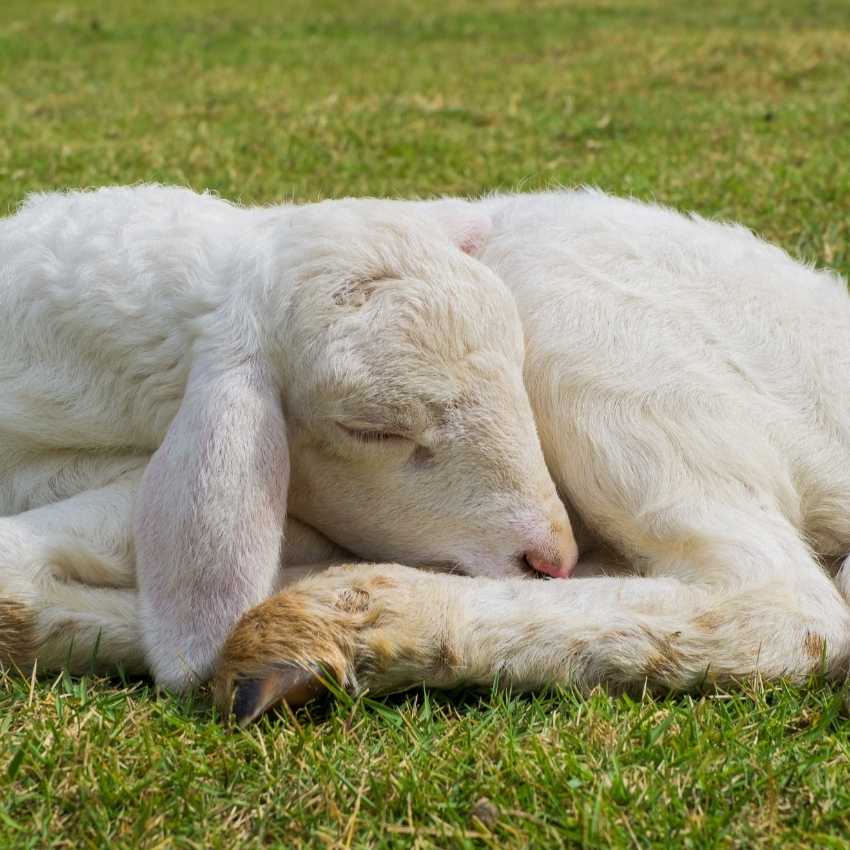
Conclusion
Throughout history, sheep have held a unique and profound place in our cultural and spiritual narratives. Their symbolism, spanning from ancient rituals to modern-day interpretations, offers a rich tapestry of insights.
From the purity and sacrifice they’ve represented in ancient tales to their deep-rooted significance in our dreams, sheep serve as a mirror to our own experiences, emotions, and aspirations. Their dual symbolism, especially the contrasting narratives of the black and white sheep, underscores the complexities of human nature.
As we’ve delved into the myriad interpretations across various cultures and dream contexts, it’s evident that the lessons sheep offer are both timeless and universal. They remind us of the virtues of loyalty, the essence of gentleness, and the profound connections we forge in our spiritual journeys.
So, whenever you come across these gentle creatures, be it in reality or in the dream world, take a moment to reflect on the age-old wisdom they embody. Their silent presence and soft bleats carry messages that resonate deeply, urging us to introspect, learn, and grow.
